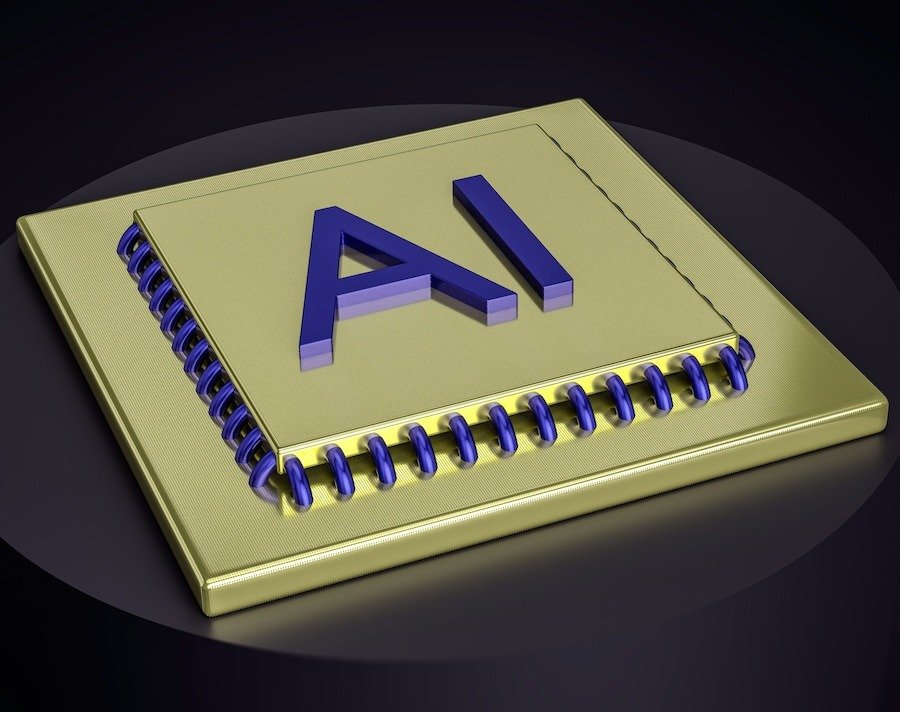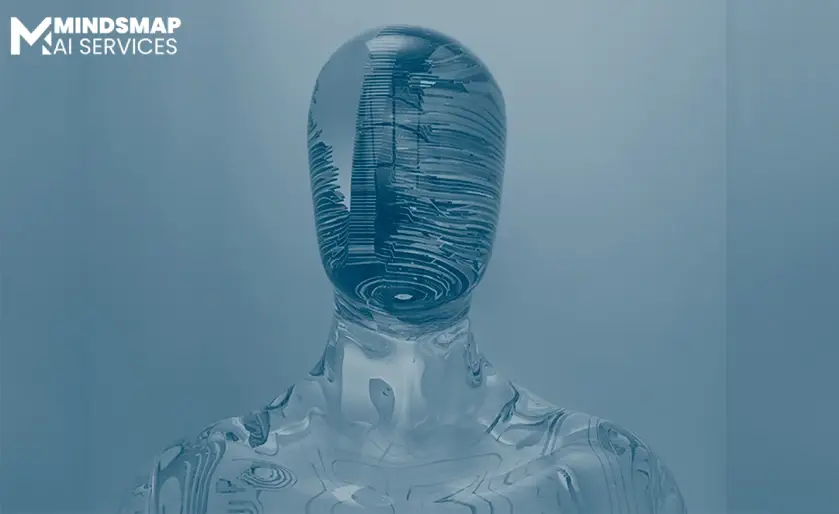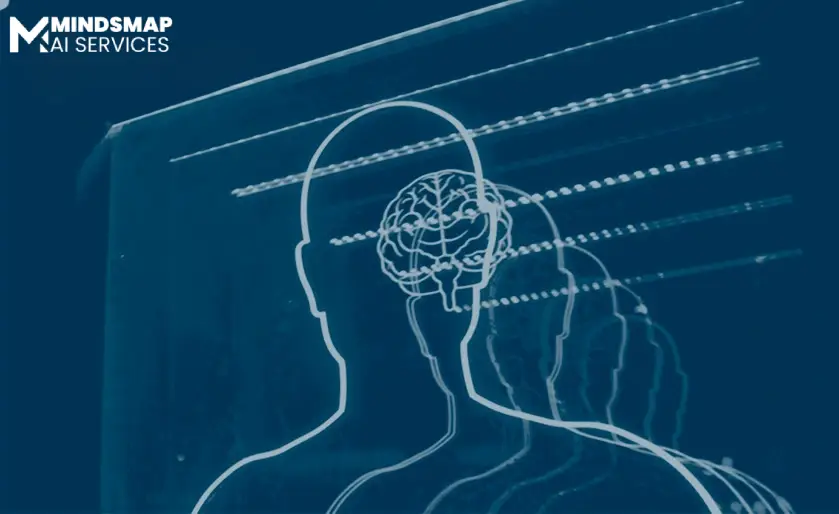Artificial intelligence solutions have become a dynamite that exploded loudly in the mass market and business realm. We can name countless AI agents examples that have found their application in various verticals.
Today’s AI agents are already bringing about a significant effect as assistants in companies’ path to creativity, improved productivity, and better customer satisfaction. High accuracy, undeniable efficiency, quick decision-making, cost-effectiveness, and many other benefits brought by agent-based AI tempt entrepreneurs around the world to utilize AI for business.
In this article, we will delve into the notion of artificial intelligence agents, their functions, applications, and examples to help future innovators get a brighter picture of the technology.
What are AI agents?
AI agent is a program designed to reproduce human skills. In real-world scenarios, they can vary from basic programs that carry out a single function to sophisticated systems that oversee complex operations.

AI agents excel in uncertain settings, utilizing their flexibility and ability to learn. These agents are capable of browsing the internet, communicating with applications, handling extensive data sets, and participating in transactions, all while adjusting their methods according to the results and feedback they receive.
The general characteristic of all such agents is the ability to extract knowledge from the set of data. Consider an NLP tool for customer experience consulting – it can provide customers with personal recommendations, process their queries promptly, and help resolve arising questions based on the data it was trained on.
What functions do AI agents perform?
AI agents and artificial intelligence chatbots are used for numerous reasons. It’s no surprise that they have become an indispensable part of many processes due to the variety of functions they perform. Below you can find the AI agents’ list of main functions:
- Data processing and analysis: AI systems can not only collect data from different sources (databases, websites, sensors) but also clear them of noise, errors, and inconsistencies. They then convert the data into easy-to-analyze formats, identify patterns, trends, and anomalies, and present the results in clear graphs, diagrams, and other visual forms.
- Machine learning: AI agents are trained on large amounts of data, which allows them to predict future changes, classify new data elements, group similar elements into clusters, reduce the dimension of data without information loss, solve problems, plan actions, and optimize processes. Learning takes place through ML algorithms that allow systems to learn from data and improve their skills.
- Reasoning and decision making: Artificial intelligence agents are able to reason using logic rules and make decisions based on available data. They can solve complex tasks, plan the sequence of steps to achieve the goal and choose the best option out of a multitude of possibilities.
- Pattern recognition: AI agents can recognize objects, people, and scenes in images and videos, understand speech, and identify people by their biometric data (fingerprints, face). This allows them to interact with the world more naturally.
- Robotics systems control: AI systems can control robots by planning their movements and controlling their actions. They can also drive without human intervention, automate industrial processes, and perform other tasks that require precision and coordination.
- Creative activity: Generative AI applications can generate text, music, images, and other creative materials. They can create poems, articles, scripts, music, paintings, and photographs, demonstrating creativity and originality.
- Training: AI agents adapt the learning process to the individual characteristics of each student, assess knowledge and skills, and develop teaching materials.
- Communication: Generative AI systems talk to people in chat rooms or via voice interfaces, perform various tasks upon user request, act as virtual assistants, and can also interact with people in social settings like social robots.
- Research: AI systems can play an important role in scientific research by helping scientists analyze data, formulate hypotheses, generate new ideas for research, conduct experiments automatically, and make discoveries.

Source: Unsplash
AI agent types & examples
We observe an incredible spread of artificial intelligence agents throughout different verticals. You can encounter one several times a day without even realizing it. Let us demonstrate a couple of examples of intelligent agents in AI and what specifics they have.
Virtual assistant
Virtual assistants are NLP-based and can perform various tasks for the user simulating natural communication with a human.
From Siri and ChatGPT to company-based website chatbots, they aim to give users responses to their questions and facilitate certain tasks. They are getting more widespread thanks to their ability for self-learning and the possibility of integration with any service or a company’s internal system. Employees leverage virtual assistants to schedule meetings and organize their schedules, while other companies implement chatbots to improve customer experience.
Learn more about the benefits of virtual assistant integration into your business by watching
this video:
Autonomous robots
An autonomous robot is armed with AI to be able to perform numerous tasks without constant human control. It is usually equipped with sensors that allow it to perceive the environment and navigate the space. In brief, it uses machine learning to analyze data, makes a decision, and acts with the help of integrated elements or other devices. You can see such a robot in item packaging, healthcare operations, or harvesting and animal care in agriculture. As a result, companies receive fewer human errors, higher accuracy, and higher performance.
Monitoring agent
The purpose of monitoring systems is to track the state of the process or system, identify potential problems and deviations from the norm, and provide information for decision-making. They use AI for the automatic collection, analysis, and interpretation of data from various sources such as sensors, cameras, networks, and more.
By adopting it, manufacturing companies can forecast breakdowns, healthcare organizations can perform disease diagnosis, banks can track transactions – all to reduce risks, increase quality and performance with fewer resources used.
Anti-fraud agent
In today’s world, with more and more online transactions, the risk of becoming a victim of fraudsters increases. Here, fraud detection agents come into play to combat fraud by detecting suspicious patterns and preventing fraudulent activities. They ensure the security of online shipping, insurance, and financial transactions and protect companies’ clients.
For instance, PayPal managed to reduce fraud by 0.32% of revenue thanks to its early adoption of the anti-fraud system, while the average figure on the market is 1.32%.

Source: Unsplash
AI agents applications across industries
Intellectual agents are rapidly conquering new areas, transforming our world. You can encounter one in any industry where it serves a particular purpose and has industry-specific features. Let us shed light on how intellectual agents are used in different industries and give some real-life examples of AI agents.
Healthcare
In healthcare, AI agents act as indispensable diagnosticians, analyzing medical images with accuracy that is not available to humans. They speed up drug development by identifying promising compounds and predicting their efficacy.
Companies utilize AI agent tools to create individual treatment plans as well as control robotic surgical systems, which makes operations more accurate and less time-consuming. That’s how in 2023, the AI agent company Google used the technology to diagnose skin cancer with an accuracy greater than that of dermatologists.
Finance
In the financial sector, AI agents fight fraud by optimizing investment portfolios, assessing loaners’ creditworthiness, and helping people manage their finances. Some of the finance examples of agents in AI include JP Morgan which adopted the technology and managed to reduce fraud by 70% and save $200 million for the company per year.
Another goal of AI agents is to facilitate the investment process by informing decision-making.
Watch the video to know more:
Manufacture
Manufacturing enterprises use AI agents to predict equipment breakdowns, optimize production processes, control robots, and maintain high product quality. Some of the AI agents use cases in predictive maintenance include Siemens which reached a 40% reduction in downtime and a 10% increase in company productivity.
Retail
In retail, these smart assistants recommend products, facilitate the search for the right positions, and dynamically adjust prices.
Companies go for AI chatbot development to provide round-the-clock support to their customers. They adopt customer care analytics systems to analyze reviews, search history, and user behavior to eventually offer customers personalized recommendations, increase their loyalty, and solve problems promptly. One AI agent example here is Amazon , which was among the first to turn to LLM development and built a recommendation system that brings 35% of its revenue.
Marketing
AI agents are introduced into all aspects of marketing, from market research and content creation to advertisement targeting and customer service. AI-based marketing analytics tools identify trends, behavioral patterns, and hidden opportunities, which helps companies make informed decisions about target audiences, pricing strategy, and positioning in the market.
Logistics
Artificial intelligence is transforming logistics by optimizing supply chains and increasing efficiency at all stages. AI algorithms solve such tasks as demand forecasting, inventory management, or route optimization. It eventually reduces expenses, increases delivery speed, and improves customer service. Among real-world AI agent use cases, we can mention DHL which adopted Cubicycle to analyze traffic and weather and optimize delivery routes.

Source: Unsplash
The future of AI agents
In 2024, the world of AI agents is rapidly developing, and new exciting opportunities are on the horizon. Here is the list of AI agents key trends that experts believe will shape the future of this area.
Broader capabilities of LLM
In the future, the capabilities of large language models will see tangible growth making them even more versatile and powerful tools for different tasks. They will be able to adapt to new situations in real-time, have more natural dialogues with humans, and operate in difficult conditions without constant human intervention.
Generative AI
Generative artificial intelligence development is a new branch of artificial intelligence that creates new realistic and creative materials that were previously unavailable. The hearts of all industries have already been won with boundless generative AI advantages, and the technology is still picking up steam.
Integration with other technologies
AI agents will be increasingly integrated with other advanced technologies such as robotics, augmented reality, cloud services, and the Internet of Things. This will lead to new applications and new possibilities for people to interact with machines and the world around us.
Ethical AI
As AI agents become more powerful, it is critical to ensure they are developed and used in accordance with ethical and security principles. Issues such as AI bias, algorithm transparency, privacy concerns, and the potential impact of AI on jobs will need to be addressed. This will require thorough AI consulting, the adoption of AI TRiSM techniques, and a collaborative effort among researchers, developers, and policymakers.
Summing up
AI agents have penetrated all areas of industry, from healthcare to finance and retail. They demonstrate a wide range of capabilities and applications and offer solutions that increase efficiency, reduce expenses, and open new opportunities for innovation.
As these technologies continue to evolve, we can expect them to have a profound impact on all aspects of our lives. This will undoubtedly lead to the transformation of many industries and the emergence of new, previously unimaginable ones.
FAQ
-
AI agents perceive information from the environment (user behavior, product quality, movements, schedule, etc.), analyze it, and make decisions based on that information to achieve given objectives.
-
You can use them to optimize delivery routes, schedule meetings, handle client queries, create different types of content, monitor production quality, and many more.
-
It can be applied in healthcare to create personalized treatment plans, conduct complex surgeries, and diagnose diseases. In finance, it identifies fraudulent actions and helps ensure secure transactions. In transportation, it is a great asset in optimizing routes. What’s more, it is becoming an indispensable assistant in providing high-quality customer experience in many spheres.
-
They include virtual assistants (Siri, Alexa), chatbots (for instance, any chatbot on an online shop website that interacts with you), recommendation systems (like the one on Amazon), self-driving cars, or robots that help perform surgeries in healthcare or sort our packages in warehouses.
-
AI agents, also known as intelligent agents, are experts in automating tasks and handling information. They can provide support and resolve issues with your customers, create schedules or manage inventory, help vehicles navigate safely, generate different creative materials, and gain invaluable insights from your data.
-
The most common type of an AI agent is a virtual assistant such as Mindsmap AI’ Aurora Borea, Samsung’s Bixby, Apple’s Alexa, and Microsoft’s Cortana. There are also chatbots (Erica from Bank of America, recruitment chatbot Mya, or Skyscanner’s chatbot). Autonomous robots include Xenex’s LightStrike Germ-Zapping disinfection robot, exploration robots (like NASA’s Curiosity), Tesla self-driving cars, Bossa Nova’s inventory control robots, and others. Anti-fraud agent real-world examples include Feedzai and SAS Anti-Money Laundering.



